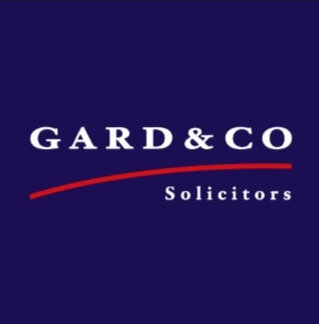Best ADR Mediation & Arbitration Lawyers in Plymouth
Share your needs with us, get contacted by law firms.
Free. Takes 2 min.
List of the best lawyers in Plymouth, United Kingdom
About ADR Mediation & Arbitration Law in Plymouth, United Kingdom
Alternative Dispute Resolution (ADR) comprises various methods used to resolve disputes outside traditional court proceedings. The two most common forms are mediation and arbitration. In Plymouth, United Kingdom, ADR is increasingly favored for its cost-effectiveness and efficiency in resolving civil, commercial, family, and employment disputes. Mediation involves a neutral third party helping participants negotiate a mutually acceptable solution, while arbitration is more formal, with an arbitrator making a binding decision after hearing both sides. Local courts often encourage or require ADR before allowing cases to proceed to trial. Plymouth has a growing network of qualified mediators and arbitrators available for residents and businesses seeking to resolve disputes.
Why You May Need a Lawyer
Seeking legal help with ADR mediation and arbitration can be crucial in several scenarios:
- If you are involved in a business, family, property, or employment dispute and want to explore options outside of court.
- If you feel unsure about your rights, responsibilities, or potential outcomes when entering mediation or arbitration.
- If you need help preparing for a mediation or arbitration, including gathering evidence and formulating arguments.
- If your dispute involves complex legal principles or high-value claims.
- If you are asked to sign a mediation or arbitration agreement and want to ensure you understand the terms and implications.
- If you need assistance in enforcing or challenging an arbitration decision.
- If you are dissatisfied with the outcome of an ADR process and need advice on potential next steps.
Local Laws Overview
ADR processes in Plymouth operate within the broader legal framework of England and Wales. The practice of mediation and arbitration is guided by several key statutes and regulations:
- The Arbitration Act 1996 governs most aspects of arbitration, setting out the rights, duties, and procedures for arbitrations in Plymouth and the wider UK.
- Civil Procedure Rules Part 31 and Practice Direction 31A encourage parties to seek ADR before pursuing litigation in court.
- Mediation is not legally binding unless parties agree to a settlement and formalize it in writing, while arbitration awards can be binding and enforceable by the courts.
- Certain family disputes are required to undergo a Mediation Information and Assessment Meeting (MIAM) before court action can be taken.
- Employers and employees in workplace disputes often use ACAS (Advisory, Conciliation and Arbitration Service), which provides statutory early conciliation services.
Local mediation and arbitration providers in Plymouth adhere to national accreditation standards and codes of practice, ensuring professionalism and confidentiality throughout the dispute resolution process.
Frequently Asked Questions
What is the difference between mediation and arbitration?
Mediation involves a neutral mediator who facilitates discussions to help parties reach a voluntary agreement. Arbitration is more like a private court hearing where a neutral arbitrator listens to both sides and makes a binding decision.
Do I have to attend mediation before going to court in Plymouth?
For many types of civil and family disputes, courts generally expect parties to attempt mediation first. In family cases, attending a Mediation Information and Assessment Meeting is often mandatory.
Is an arbitrator’s decision legally binding?
Yes, in most cases, an arbitrator’s award is legally binding and can be enforced by the courts, similar to a judgment.
Can I bring a lawyer to mediation or arbitration?
Yes, you can bring a solicitor or legal representative to both mediation and arbitration. Many people choose to be represented, especially in complex or high-value cases.
How long does the ADR process usually take?
The length of mediation or arbitration varies depending on the complexity of the dispute and the willingness of parties to cooperate. Mediation can often resolve disputes in a matter of hours or days, while arbitration might require several weeks or months.
What kinds of disputes can be resolved through ADR in Plymouth?
ADR is suitable for a wide range of disputes, including commercial, consumer, family, employment, property, and neighbor issues.
How much does mediation or arbitration cost?
Costs depend on the provider, the complexity of the dispute, and the duration of the process. Mediation is usually less expensive than litigation, while arbitration costs can be similar to or slightly less than court proceedings for complex cases.
Are ADR proceedings confidential?
Yes, mediation and arbitration proceedings are generally confidential, with details not disclosed to the public. This confidentiality is one of the advantages of ADR.
Can an ADR agreement be enforced if one party does not comply?
A mediated agreement can be formalized into a binding contract, which can be enforced in court. Arbitration awards are legally binding and enforceable by the courts.
Where can I find a qualified mediator or arbitrator in Plymouth?
Most mediators and arbitrators are affiliated with recognized accreditation bodies. Solicitors, local legal advice centers, and national directories can provide recommendations.
Additional Resources
For those seeking further information or assistance with ADR in Plymouth, consider the following resources:
- Citizens Advice Plymouth - Provides general legal advice and can direct you to local ADR resources.
- Plymouth Mediation - A community-based organization offering mediation services for various types of disputes.
- ACAS (Advisory, Conciliation and Arbitration Service) - Specializes in workplace dispute resolution.
- The Law Society - Offers a solicitor search function to find ADR specialists in Plymouth.
- The Civil Mediation Council - Accredits and lists qualified mediators across the UK.
- Family Mediation Council - For family-related mediation services and accredited professionals.
Next Steps
If you are facing a dispute and are considering ADR mediation or arbitration, start by gathering all relevant documents and details about your case. Consider consulting a local solicitor specializing in ADR to discuss your options and determine the best course of action. They can help you understand your rights, prepare your case, and represent you throughout the process. Research local mediators or arbitrators, and where appropriate, contact organizations such as Citizens Advice, the Civil Mediation Council, or ACAS for further guidance. Early professional advice can often save time, money, and stress, leading to faster, amicable resolutions.
Lawzana helps you find the best lawyers and law firms in Plymouth through a curated and pre-screened list of qualified legal professionals. Our platform offers rankings and detailed profiles of attorneys and law firms, allowing you to compare based on practice areas, including ADR Mediation & Arbitration , experience, and client feedback.
Each profile includes a description of the firm's areas of practice, client reviews, team members and partners, year of establishment, spoken languages, office locations, contact information, social media presence, and any published articles or resources. Most firms on our platform speak English and are experienced in both local and international legal matters.
Get a quote from top-rated law firms in Plymouth, United Kingdom — quickly, securely, and without unnecessary hassle.
Disclaimer:
The information provided on this page is for general informational purposes only and does not constitute legal advice. While we strive to ensure the accuracy and relevance of the content, legal information may change over time, and interpretations of the law can vary. You should always consult with a qualified legal professional for advice specific to your situation.
We disclaim all liability for actions taken or not taken based on the content of this page. If you believe any information is incorrect or outdated, please contact us, and we will review and update it where appropriate.










